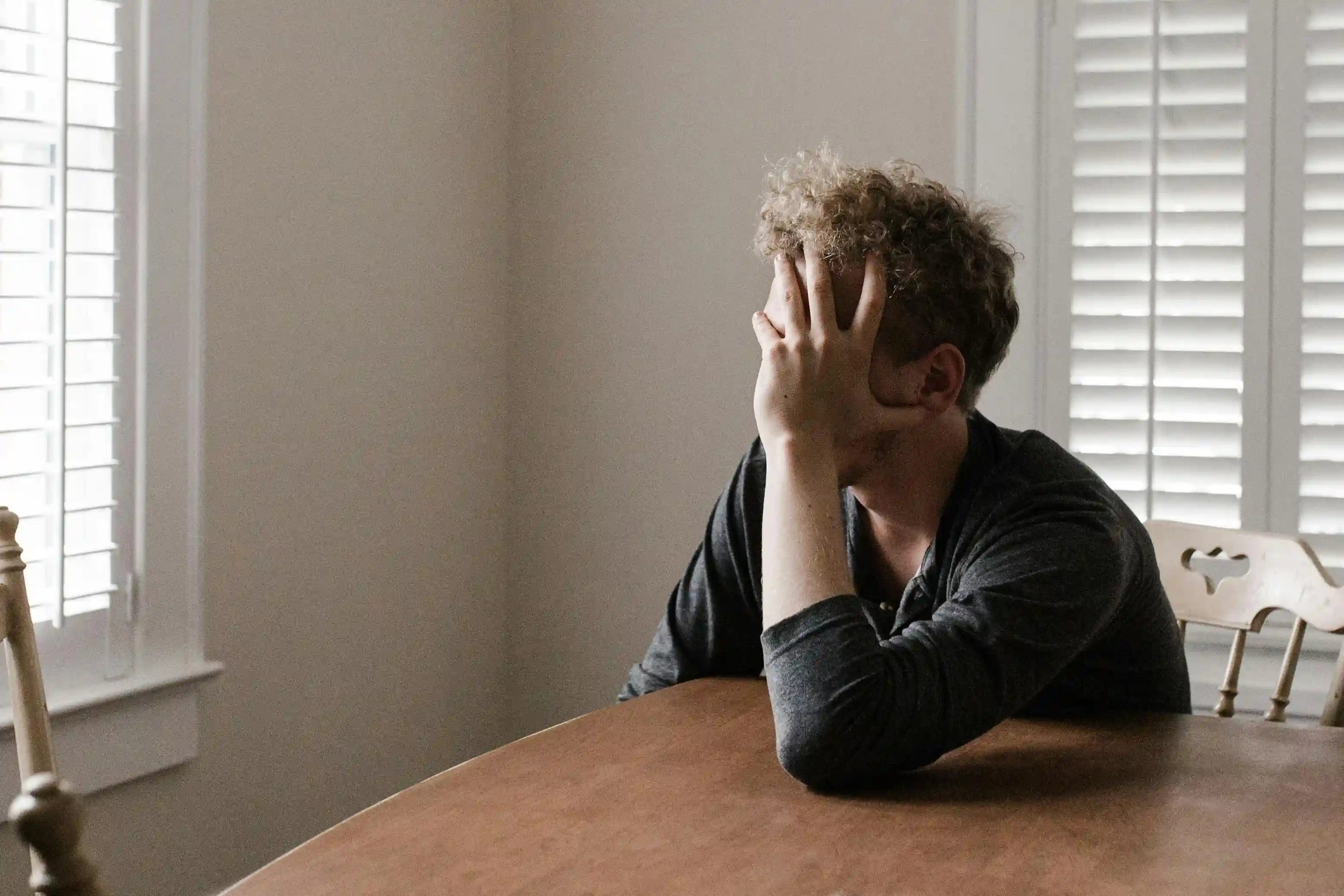How to Cope Up From a Breakup

Understanding how to cope up from a breakup takes time.
Whether you’re married or still in a relationship, a breakup is one of the most difficult things you will experience in your dating life. You’ve invested so much of yourself into one person, only for them to just up and leave one day. All the memories and times you’ve spent together, down the drain.
The breakage can be caused by different circumstances, but one thing is for certain—it leaves a bad taste in your mouth. The wounds a breakup brings can be deep and difficult to heal. You find yourself scarred and down, and you are often traumatized, causing you to close yourself off to love.
According to the National Library of Medicine, coping strategies are cognitive and behavioral efforts to reduce stress. There are 16 coping strategies that Zuckerman and Gagne grouped into 5 categories: self-help, approach, accommodation, avoidance, and self-punishment.
So, instead of moping and engaging in unhealthy coping mechanisms, let us help you pick up the pieces so you can start mending yourself. Learn how to cope up from a breakup, no matter how painful, with these tips.
How Do You Cope with a Breakup?
Different people have different coping mechanisms. While some stress eat their way to recovery, others wallow in sadness until they run out of tears. But while these methods have one goal in mind, they are unhealthy ways to cope with a breakup. They shouldn’t be the be-all and end-all of what to do after a breakup.
Instead, prioritize your well-being. Moping and stress eating might help, but at what cost? You’re already down from your recent breakup, you’re only pulling yourself further down by hurting yourself physically and emotionally. Get to the core of the issue and understand your situation; only then can you begin to heal.
Sounds easy, right? Unfortunately, it is far from that. To say it is complex would be an understatement.
“How do I get over a broken heart?” is only one of many questions you have to answer before you can ultimately move on. There’s “Where did I go wrong?” “Were my efforts not enough?” These questions, and then some, are the missing pieces to your puzzle. Answering them gives you awareness and allows you to acknowledge what happened.
Awareness and Acknowledgement
Sometimes, things just happen. You just have to accept them as they come. The best way to start the healing process is to be aware of the situation you’re in. Remember, being aware of your actions and your state is the best first step you can take when you start your moving on phase.
Being aware means seeing things in a neutral perspective; seeing the effects of certain actions on the relationship will give you an idea of what the aftermath is like. It allows you to prepare yourself.
But being aware is not enough. What’s the point of being aware if you won’t acknowledge it? That’s just denial. Denial is a disapproval of your reality. You need to accept that this is your reality. To move on is to be aware of the reality and to accept the reality you’re in.
It takes guts to accept the dire situation you are in. That’s why some would rather ignore it and continue with their lives. What they don’t know is that constant denial can lead to unresolved trauma, which can cause you to subconsciously hurt people while inflicting damage on yourself.
What better way to acknowledge the pain than to grieve?
Grieve
Picture yourself as a can of soda. The soda inside you is your emotions and frustrations—everything that could build up into something intense. Now imagine that a breakup is like someone shaking that can of soda. Naturally, when you shake a carbonated drink, it’s going to eventually burst—in this case, for you, you will emotionally explode if you don’t manage your emotions.
Don’t bottle up your sadness and regret. You’re a human being, after all; it doesn’t matter if you’re a man or a woman, everyone needs to let go of their frustrations. If you want to cry, do it. No one will judge you. You’ve gone through something emotionally drastic—of course, you need to cry.
Allow yourself to feel bad, feel the weight of your sorrow, and release your sadness. Letting go of memories and experiences is like releasing a sandbag being dragged by a rope tied to your hand. Naturally, the pain of the rope cutting off the circulation of your hand lingers. It’s better to let go and feel the pain rushing, than to continue carrying the burden of your sadness.
Although it’s good to feel the pain, just don’t forget to never linger there for long. The longer you wallow in your sadness, the more difficult it will be to let go of your breakup. Remember that there are other ways to grieve—listening to music, for example, is a good way to relieve your emotions.
Let Music Heal Your Soul
Time heals all wounds, but music helps you feel better. There are tons of breakup songs you can relate to. Nothing like a good heart-wrenching song to belt out your sadness to make you feel lighter and better.
People around the world experience breakups all the time, even famous singers. What they’d do is craft songs from their experiences. This way, listeners can relate better to the lyrics and rhythm. Music lets you know you’re not the only one going through such pain.
Try listening to moving on songs. Not only will they allay your fears, but their lyrics will also soothe your hurting heart. The emotional force of their words will tug at your heartstrings, inspiring you to move on from your ex-lover. Better yet, pursue your hobbies while listening to the healing power of music.

The breakage of a relationship can be devastating if you don’t know how to cope.
Take on Hobbies, Engage in Activities, and Establish Routines
One of the more proactive ways to cope with a breakup is to be active. Distraction is the name of the game. If you set your mind to achieve a certain goal, you will effectively shift your focus to your objectives rather than your past relationship.
For example, many people these days are in their “Running Era.” Running can be tiresome, which is a good thing. As such, it conditions your mind to focus on what you are currently feeling—your aching muscles or catching your breath. It lowers your breakup from the priority list, keeping it out of your mind.
The gym is also a good alternative. Instead of stress eating, why not go the healthy route? Release your negative energy by pumping iron. The gym is one of the best places to release your frustrations. However, you need to be mindful that if you get lost in rage, you’ll forget about your form, and a nasty injury might come your way.
Otherwise, if you’re not into fitness, you can always turn to your routines. That’s right, even your daily grind can help rid your mouth of the bitter taste of a breakup. Focus on your tasks at work, go grocery shopping, or watch your favorite show. Don’t let your failed relationship shackle you. You may have failed in love, but you’re certainly doing great in life.
Maintain a healthy body and mind to become an unstoppable force and easily move on from your breakup. But if you still have doubts, don’t be afraid to seek professional help.
Professional Guidance
There’s no shame in seeking professional help, especially if you don’t know how or where to start healing. A therapist can guide you when it comes to piecing your emotional puzzle.
Therapists and counselors understand that you need an unbiased ear to listen to your problems. They take pieces of your story, connect the pieces, and then give you an elaborate interpretation of your situation. They then give you counsel, so you can decide whether to follow their guidance, restructure their advice, or take none at all.
But don’t rush yourself if you’re not ready to hear what other people have to say. Take all the time you need.
Take Your Time to Get Your Groove Back
Knowing how to cope up from a breakup can take time. We heal at our own pace. Some might easily cope within months, while some might take a year or two to finally know what to do after a breakup. Then again, who’s telling you to move on quickly?
Learning how to move on is the best part of the journey. The experiences you gain, the embarrassment you’ll face, and the nostalgia will hit you once you’ve grown wiser—you’ll realize how lucky you are that you never gave up.
Remember that coping doesn’t mean you have to do it alone. There’s a reason why healing starts with yourself, then comes the aid of others; you know yourself more, but you can’t piece yourself together alone. Your friends and family are there to help you get back up on your feet, and from there on, it’s up to you to decide whether you want to move on or continue to dwell in the past.
Reference:
Gehl, Kristin, Audrey Brassard, Caroline Dugal, Audrey-Ann Lefebvre, Isabelle Daigneault, Audrey Francoeur, and Tania Lecomte. 2023. “Attachment and Breakup Distress: The Mediating Role of Coping Strategies.” Attachment and Breakup Distress: The Mediating Role of Coping Strategies. https://pmc.ncbi.nlm.nih.gov/articles/PMC10727987/.
